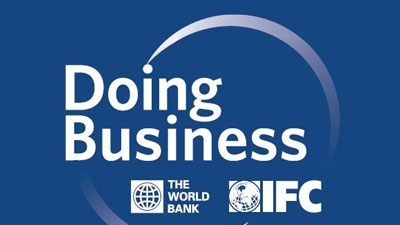ASTANA – Kazakhstan was among the top 10 improvers in this year’s World Bank Doing Business report, released Oct. 25. Kazakhstan climbed 16 positions since 2015, reaching 35th place in the ranking of the ease of doing business among 190 countries.
Rounding out the 10 most-improved economies were Brunei Darussalam, Kenya, Belarus, Indonesia, Serbia, Georgia, Pakistan, the United Arab Emirates (UAE) and Bahrain.
“This significant improvement has been ensured by four of 10 indicators; namely, by facilitating the procedures for obtaining permits for construction, ease of registering property, improving the protection of the rights of minority investors and contract enforcement. It is a good achievement for Kazakhstan,” Senior Partner at the Centre for Strategic Initiatives Olzhas Khudaibergenov told The Astana Times.
According to the World Bank, better performance in the Doing Business ranking generally implies a lower level of income inequality and reduced poverty.
“Simple rules that are easy to follow are a sign that a government treats its citizens with respect. They yield direct economic benefits – more entrepreneurship; more market opportunities for women; more adherence to the rule of law,” said World Bank Chief Economist and Senior Vice President Paul Romer in a statement recently about the bank’s report.
“But we should also remember that being treated with respect is something that people value for its own sake and that a government that fails to treat its citizens this way will lose its ability to lead,” he added.
The World Bank ranks economies on 10 parameters. Among the report’s categories, Kazakhstan improved its standing in indicators such as dealing with construction permits (leaping from 78th to 22nd place), protecting minority investors (rising 22 places to third) and getting electricity (rising 27 places to 75th). Slight improvements were made in starting a business, trading across borders and resolving insolvency (climbing to 45th, 119th and 37th respectively). At the same time, the economy lost ground in the categories of getting credit and paying taxes and remained unchanged in enforcing contracts.
Dealing with construction permits, the category which showed the most improvement, was facilitated by introducing a single-window system and streamlining procedures. The report covered the city of Almaty but its findings are applied to the entire Kazakh economy.
Kazakhstan enhanced protections for minority investors by introducing stricter requirements for immediate disclosure of related-party transactions to the public, increasing shareholder’s rights and roles in major corporate decisions, clarifying ownership and control structures and requiring more corporate transparency.
The process of getting an electricity connection was simplified by eliminating the need to obtain an official excavation permit and an inspection by the State Energy Supervision Committee. Kazakhstan also shortened the time needed to obtain the technical conditions from the utility company and signing the supply contract.
Starting a business was made simpler by abolishing the requirement to notarise company documents and founders’ signatures.
Trading across borders was made easier by eliminating two export documents previously required for customs clearance.
Kazakhstan made resolving insolvency easier by changing voting procedures for organisation plans and providing protections to creditors who vote against such plans. In addition, creditors were granted greater access to information about debtors during insolvency proceedings and allowed to challenge decisions affecting their rights, the report noted.
“More than 40 regulations were adopted in Kazakhstan within the implementation of the five institutional reforms. New measures aim to reduce the time and the number of procedures and tackle corruption. However, it is not enough just to adopt regulations, it is more challenging to ensure the implementation of these changes,” said Chair of the Board of the Almaty Development Centre Zhanna Tulegenova in a Facebook post about the new ranking.
Europe and Central Asia have made much more significant improvements in business regulation than any other region. Kazakhstan, Georgia, Macedonia, Belarus, Armenia and Russia have made the most reforms in Europe and Central Asia, carrying out more than 30 reforms each since 2004. Kazakhstan was listed among seven countries in the region to reform across all Doing Business indicators.
This year, Kazakhstan is ranked between Japan and Romania. The country is ahead of Russia (40), Kyrgyzstan (75), China (78) and Uzbekistan (87).
The World Bank ranked New Zealand as the best economy for ease of doing business, followed by Singapore and Denmark.
This year’s Doing Business report includes, for the first time, gender measures in three indicators – starting a business, registering property and enforcing contracts. Europe and Central Asia were the only regions to provide equal opportunities for both women and men to start a business.

